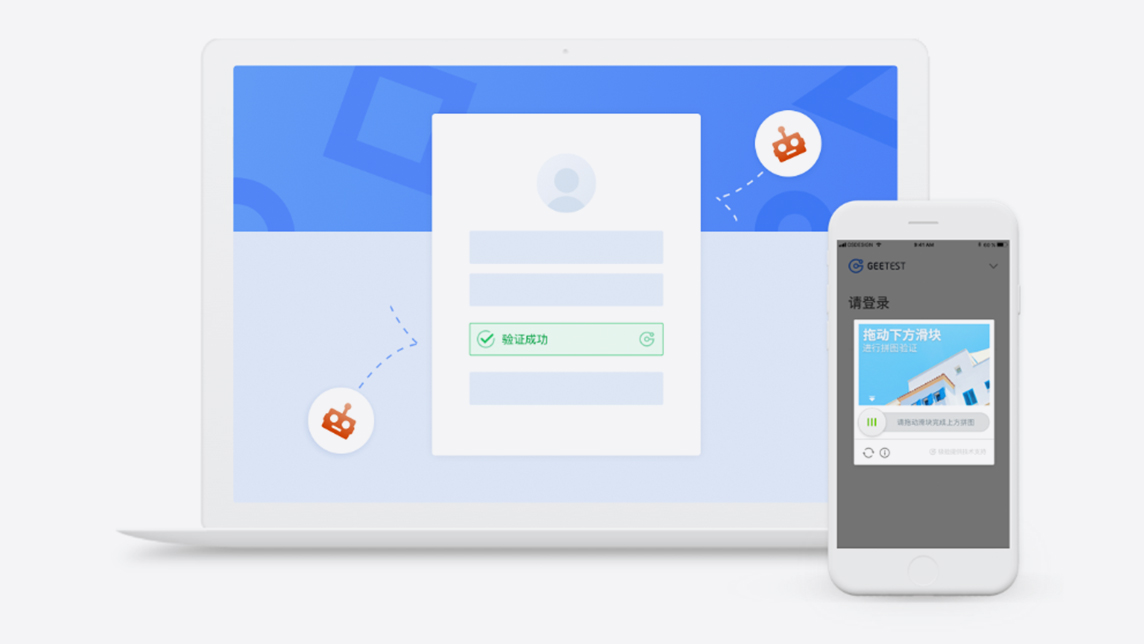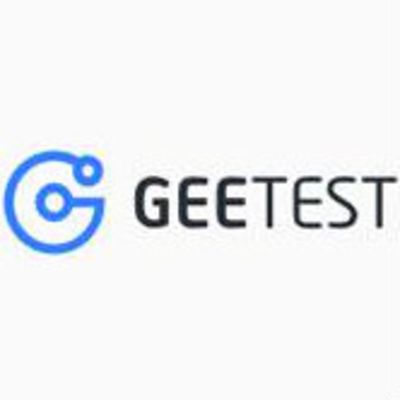In 2000, cybersecurity pioneer Luis von Ahn invented captcha, short for “completely automated public Turing test to tell computers and humans apart.” Since then, it has become a ubiquitous tool to secure websites, requiring users to decipher some extremely squiggly numbers or letters.
"Humans can read the distorted characters, whereas computers can't do it as well," von Ahn once explained.
However, sometimes even humans are unable to read the distorted letters and words. Robots, on the other hand, are learning to decipher the illegible codes.
In late 2011, Wu Yuan, founder and CEO of Geetest, reached out to Zhang Zhenyu, his future co-founder, with an idea: “Why not create an easier means of authentication without compromising security?”
Safer, quicker, and easier to use
And they did. In December 2012, Geetest launched Sensebot, a captcha solution based on the startup’s behavior analysis technology.
User verification became a fun game. Instead of indecipherable numbers or letters, website visitors are presented with a small jigsaw puzzle featuring, say, a funny cartoon dinosaur with one missing piece to the side. All users have to do is drag the missing piece to complete the puzzle.
Despite the simplicity of the game itself, the working mechanism behind the verification is actually quite complicated. Geetest’s technology analyzes behavioral characteristics demonstrated during the verification process to differentiate humans from robots.
Through deep learning, Geetest’s AI system continuously sharpens its ability to make these judgments by collecting behavioral data to train itself. So far, the startup has accumulated more than 100 billion pieces of such data.
Chinese blogging website Sina Blog used to have a problem with spam blog posts and comments. The site spent a lot on maintenance costs. Now its visitors are required to solve Geetest’s jigsaw puzzle before registering as a new user, publishing a blog article, posting a comment or sending a private message. Now only 1% of articles and 7% of comments are spam.
In order to further streamline the verification process for apps, Geetest released OnePass at the end of 2017.
OnePass eliminates the need for app users completing the verification process to key in a code received via text message or complete the jigsaw puzzle. The whole process can be completed with the click of a button.
A bumpy road to wide adoption
“You might not have heard of Geetest, but I’m sure you’ve used our products,” said Wu.
His confidence comes from the fact that over 260,000 companies and websites worldwide – including KFC, Airbnb, Tripadvisor, Xiaomi, Huawei and Weibo.com – use Geetest products. Its products perform about 700 million authentication processes each day.
But the business’s journey has not always been smooth sailing. In the year after it was founded, Geetest only had RMB 200,000 in seed funding from Tisiwi Ventures to spend on operating costs. “We had a team of 10 members, and each got paid only RMB 500 every month. By the end of the year, we ran out of money,” recalled Zhang.
Fortunately, the tides were about to turn. In early 2014, 2657, an online gaming company, came to Geetest with the goal of equipping its website with a better verification method. The number of verification requests the startup handled increased from 5,000–10,000 to 1 million each day.
The deal and the obvious quality of the product helped the startup win more clients from the industry. Now almost all of the major online gaming companies use Geetest’s captcha solutions.
A promising market
In the digital era, cybersecurity attacks pose big threats. They also represent economic opportunities. According to the research and advisory firm Gartner, global cybersecurity spending will exceed US$114 billion in 2018. Investors have begun injecting large sums of money into cybersecurity startups.
In March 2016, Geetest secured US$24 million from Sequoia Capital China and IDG Capital. Its products are now widely used in the finance, education, e-commerce and live streaming sectors. Blockchain is the startup’s next target.
In addition to offering verification solutions to blockchain applications, Geetest also plans to take advantage of the technology itself to provide clients with greater convenience and enhanced security.
Crypto exchange Binance is always trying to improve the safety of its customers’ funds. In November 2017, it decided to give Geetest’s authentication methods a try, becoming the startup’s first client in the cryptocurrrency world.
In October 2018, Geetest reached a partnership agreement with DBX Foundation, a public chain research team. Geetest intends to develop an on-chain identification system combining both AI and blockchain to perform systematic analysis of the interactive links generated while visitors try to log on to websites or apps.
The new system will enable users to login without entering a username or password, but rather through behavioral data stored on blockchain.
The whole world is going digital and online. Users want easier verification. Websites and apps require better security. Fortunately, Geetest can satisfy both needs.














